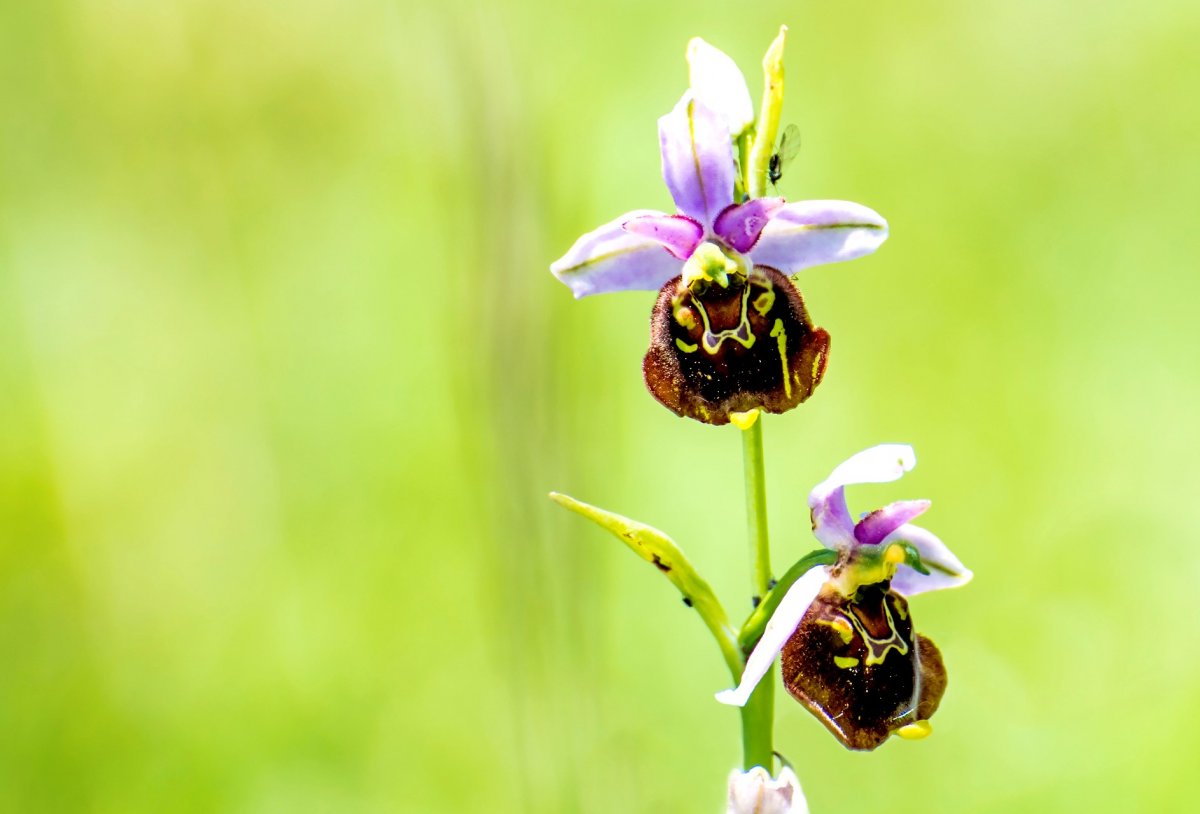Some rare and beautiful types of orchid are being pushed closer to extinction due to a spate of thefts, and botanical experts want to get to the bottom of it.
On May 24, the U.K.'s Sussex Wildlife Trust announced that it was "saddened and disappointed" to find that 10 burnt orchids—burnt orchid being the plant's name, not a reference to arson—had been stolen from the Mount Caburn National Nature Reserve in East Sussex.
The trust shared a photo of what appeared to be a disturbed patch of ground where the orchid presumably used to be, in addition to an image of a burnt orchid for reference. The group called on people with information to contact police.
We were saddened & disappointed to hear about the theft of at least 10 Burnt Orchids from Mount Caburn National Nature Reserve, adjacent to our Malling Down & Southerham nature reserves.
— Sussex Wildlife Trust 🦔 (@SussexWildlife) May 24, 2022
If you have any information, please contact Sussex Police on 101. #wildflowerhour #Lewes pic.twitter.com/vU1xPkVxlf
News of the thefts broke at around the same time as the Hardy Orchid Society tweeted its disappointment that 30 late spider orchids had been stolen from a patch of land in the English county of Kent.
The group shared photos of holes in the ground where the plants should have been and wrote: "As a reminder, it is a criminal offense to remove any part of these plants from the wild without a license".

The burnt orchid, or burnt-tip orchid, is a plant described as critically endangered by British plant conservation charity Plantlife. Confined to a scattering of sites in southern England, the tiny plant has a tuft of white flowers and a purple tip. Its decline is due to changes in agricultural practices.
The late spider orchid, widespread elsewhere in Europe, is similarly restricted in England, limited to just the county of Kent. Each plant may carry up to 10 flowers with pink petals and a distinctive velvety brown lip that is square. Its population has been estimated at only a few hundred plants, according to the Guardian newspaper, and its decline is attributed to habitat destruction according to wildlife site First Nature.
While both plants' rarity cannot attributed to theft, there are concerns the recent incidents may put even more pressure on their populations.
"It is most certainly a risk to the survival of rare species," Peter Stroh, the scientific officer at the Botanical Society of Britain and Ireland (BSBI), told The Guardian, adding that orchid collecting in Victorian times actually did lead to the extinction of the species Spiranthes aestivalis, or summer lady's tresses.
The orchid family is one of the largest groups of flowering plants on the planet. Species of orchid can be found on every continent except Antarctica and across a wide range of habitats.
Uncommon Knowledge
Newsweek is committed to challenging conventional wisdom and finding connections in the search for common ground.
Newsweek is committed to challenging conventional wisdom and finding connections in the search for common ground.
About the writer
To read how Newsweek uses AI as a newsroom tool, Click here.








